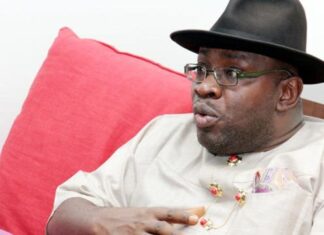Nigerian courts gave two significant judgments this month in premeditated murder cases which had dragged for years.
On Thursday, March 23, a Lagos High Court, Igbosere, sentenced two men, Okwumo Nwabufo and Olisaeloka Ezike, to death by hanging for luring to Lagos and killing Cynthia Osokogu, a post-graduate student of Nasarawa State University, in her room at the Cosmila Hotel, Lakeview Estate, Festac Town, on July 22, 2012.
The third accused person, Orji Osita, a pharmacist, was discharged and acquitted of the charge of recklessness and negligence for selling drugs without prescription, which the condemned men used in drugging the deceased.
It was a murder case that shook the nation five years ago and sounded the alarm bell on the dangers unrestricted access to the social media poses to unwary youths. Osokogu met and became friends with her assailant, Eloka, on Facebook and was lured to Lagos, where she was brutally murdered after being sexually abused and her belongings were stolen.
The convicts were arraigned on a six-count charge of conspiracy, murder, stealing, recklessness, negligence and possession of stolen goods, on February 8, 2013. The state called the hotel’s receptionist as its first witness.
On Thursday, Justice Olabisi Akinlade declared that after carefully analysing the evidence presented before the court, testimonies of prosecution witnesses and confessional statements the convicts made to the police, she was left with no doubt that the convicts killed Osokogu.
“In judgment, justice is required not only for the victim, but also for the society. In their attempt to steal Cynthia’s property, they stole her life,” she ruled.
Though it has taken five years for justice to prevail, there is a unanimity of opinion that at last justice has been served.
For the parents and siblings of the deceased, though nothing will bring her back to life, the judgment will bring some closure to the nightmare.
It would also serve as a deterrent to would-be beastly people like the convicts who take pleasure in inflicting pains on others.
When young people are desperate not for skills and knowledge but quick money and illicit pleasure, they end up badly.
The judgment once again brings to the fore the dangers in untrammeled addiction to social media networks.
The educational pursuits, careers and even lives of many young people have been ruined by the negative influence of social media – and parents, and indeed the society, must pay attention to this phenomenon.
However, while Nigerians hail the well-considered judgment in Lagos, not many were enamoured with the judgment of Justice Ishaq Bello of the Federal High Court, Abuja in the equally much-awaited case of the killing of six young Igbo traders in Abuja by policemen on June 7, 2005.
After 12 years of judicial flip-flops, two of the accused policemen, Emmanuel Baba and Ezekiel Acheneje, were sentenced to death. Three others, Danjuma Ibrahim, Nicholas Zakariah and Sadiq Salami, were discharged, in the judgment delivered on Thursday, March 9.
The five policemen were among the six arraigned on a nine-count charge of conspiracy and culpable homicide, which contravened Sections 97 and 221 (a) of the Penal Code Law for the killing of the traders.
The sixth person on the charge sheet, Othman Abdulsalam, who was the divisional police officer (DPO) in Apo, is claimed to still be at large.
It is instructive that the discharged policemen were indeed the officers who allegedly orchestrated the crime and ordered the killing of the victims in cold blood. The convicts were the junior officers who carried out the orders of their superiors.
The victims – Ifeanyi Ozor, Chinedu Meniru, Isaac Ekene, Paulinus Ogbonna, Anthony Nwodike – were young traders, including their female friend, Augustina Arebun, aged between 21 and 25, who were returning from a night party on the fateful day.
Following their deaths and the subsequent public outcry, an official panel of inquiry was set up by former President Olusegun Obasanjo’s administration.
The report of the panel said a face-off had ensued between Ibrahim and the group when Augustina rejected his love advances at a nightclub on Gimbiya Street, Area 11 in Abuja.
During the trial, five of the policemen accused of the killings and eight other police witnesses testified that Ibrahim, the senior police officer among them, ordered the killings.
Yet, he was discharged and acquitted.
We strongly believe that this is a travesty of justice and demand a retrial for fairness and justice.











